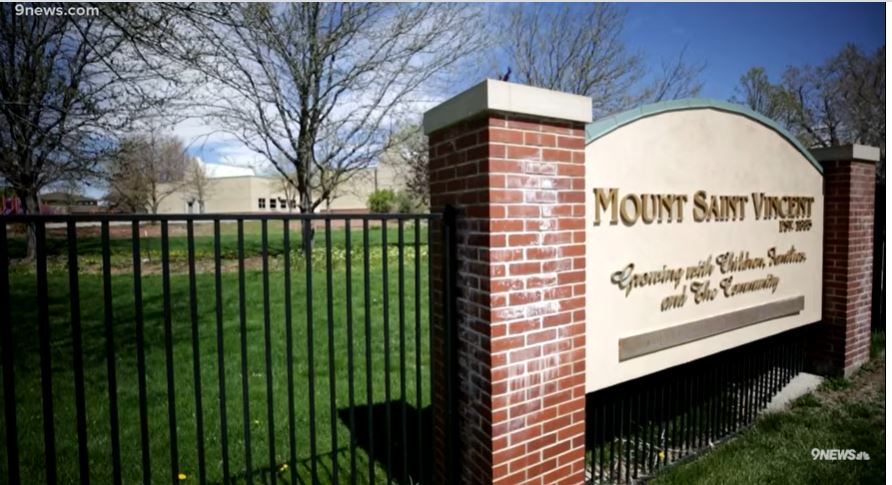By Jeffrey A. Roberts
CFOIC Executive Director
A case before the Colorado Court of Appeals will determine whether a state agency wrongfully denied two news organizations’ requests for aggregate statistics about child-abuse hotline calls made from licensed residential care facilities.
Last fall, Denver District Court Judge Darryl Shockley dismissed a lawsuit brought by 9NEWS and The Colorado Sun against the Colorado Department of Human Services (DHS), finding that releasing the numbers could violate a confidentiality provision in the Colorado Children’s Code.

Because the street addresses of the facilities are publicly known, Shockley said, it might be possible — “put together with other information” — to identify a specific caller from a facility. The Children’s Code prohibits the public disclosure of “reports of child abuse or neglect and the name and address of any child, family, or informant or any other identifying information contained in such reports.”
But an appellate brief filed recently by attorney Steve Zansberg on behalf of the news organizations challenges the judge’s conclusion. The court granted DHS’ motion to dismiss, he wrote, without a showing that someone could plausibly link the number of phone calls originating from the facilities to the identity of anyone associated with those calls.
“Merely disclosing the number of phone calls, placed over a three-year period, to the child abuse hotline from a facility that housed hundreds of anonymous children and was staffed by hundreds of anonymous staff members, cannot possibly ‘identify’ (e.g., reveal the name of) any ‘child, family, or informant’ who was involved in any of those calls,” Zansberg’s brief contends. “This is so because knowing only which multi-resident facility was the source of a phone call … does not provide any insight whatsoever into who placed the call or which person(s) at the facility any call concerned.”
Sun and 9NEWS reporters covering conditions inside Residential Child Care Facilities (RCCFs) made Colorado Open Records Act (CORA) requests for documents showing the number of Colorado Child Abuse and Neglect Hotline calls placed over the previous three years from the Mount St. Vincent, Cleo Wallace and Tennyson Center facilities. The brief filed by Zansberg, who is president of the Colorado Freedom of Information Coalition, notes that one year’s number of hotline calls from the Tennyson Center (which closed its residential facility in 2021) had already been published online by Colorado’s Office of Child Protection Ombudsman. That office also included data about child abuse complaints at a Pueblo facility in a 2019 report.
“Even though the physical street address of both the El Pueblo and Tennyson RCCFs were well-known and publicly available, no one has ever suggested that Colorado’s Child Protection Ombudsman’s disclosure of the number of phone calls placed to the child abuse hotline, or the number of those calls that were “screened in” (investigated) or “screened out” (not investigated) in one year” violated the Children’s Code, Zansberg wrote.
DHS defends its denial of the CORA requests in an answer brief filed earlier this month by Bianca Miyata, assistant solicitor general in the Colorado Attorney General’s office.
The Sun and 9NEWS “are not among the types of listed entities permitted to receive confidential child abuse information,” Miyata wrote. “Nor should they be, precisely because of the need for confidentiality to protect the privacy interests of vulnerable children and their families and to encourage witnesses of child abuse to come forward.” The plain language of the statute, the AG’s brief says, “necessarily bars disclosure of child abuse and neglect report information when requested by specific address.”
“The statute is clear: addresses are not to be disclosed. Nevertheless, the requesters attempt to create ambiguity in this provision where there is none. They contend this provision does not prohibit the Department from publicly disclosing information regarding child abuse and neglect reports that were made regarding children who live at RCCFs, the specific addresses of which are knowable to requesters and the public through investigation.”
The fact that numerous children stay at the facilities doesn’t matter, Miyata wrote. The news organizations “argue that so many children reside in each RCCF that identification of any child or informant would be impossible using the requested, aggregate number of child abuse hotline calls over a three-year period. However, that argument ignores (the) plain language and broad protection” in the Children’s Code.
Disclosures made by the Child Protection Ombudsman “are not relevant,” the AG also contends, noting that the ombudsman’s role in “facilitating systemic improvements in the child protection system” is different from that of DHS, which supervises and administers child protection services. “The fact that another entity may have interpreted its obligations under statute differently than the Department does not compel a conclusion regarding the Department’s position,” the AG’s brief says.
Follow the Colorado Freedom of Information Coalition on Twitter @CoFOIC. Like CFOIC’s Facebook page. Do you appreciate the information and resources provided by CFOIC? Please consider making a tax-deductible donation.




